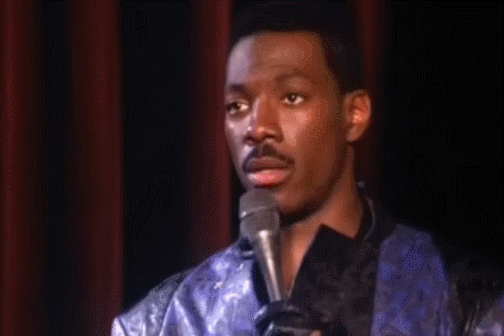In today's business world we hurry from one meeting to another presentation to the next conference. We listen to endless speeches and presentations which are, to be honest, mostly quite boring. In my whole career so far I have never heard someone say "Yeah, I'm so looking forward to this meeting!"
This shows us that public speaking is all the more important! That's why I want to share with you the key learnings of a seminar from Bill Hoogterp (who is an exceptional speaker and coach) I took part in back in 2011 during my time at Siemens.
No, imagining the audience naked is none of these.
This shows us that public speaking is all the more important! That's why I want to share with you the key learnings of a seminar from Bill Hoogterp (who is an exceptional speaker and coach) I took part in back in 2011 during my time at Siemens.
No, imagining the audience naked is none of these.
1. Lower the filters
Our brain cannot process everything we see, hear and feel. That's why we have filters that let only necessary information pass. These filters can go up or down, depending on the situation.Your audience will probably expect another boring speech. That's why you have to lower their filters at the beginning of a speech to get your message across. But how?
 |
| Source: Reactiongifs.com |
Why not begin with a question? Or a quote? Or a little poll (e.g. "Will everyone who has >insert topic/action< please stand up?"). Especially the poll will lower the filters of your audience because they have to be physically active.
It's up to you! Try new things, be creative. You will see that your audience will be more attentive (and thankful for not another boring speech).
2. Eliminate weak language
A lot of the words we say don't add any value to the content like 'actually', 'basically' or the typical 'um' and 'err'. That is weak language. But why do we use it? Because we're afraid of pauses.
To eliminate weak language, it takes a bit of practice. Try this: Fill 1/3 of a glass with Coca Cola, add 2/3 of still water. Sounds disgusting, right (Spoiler: it is!)? Now concentrate on what you're saying. Everytime you catch yourself using weak language, take a sip. You will soon find yourself rather not saying anything than drink more of that!
Which leads us to our next point, telling you what to say instead: click here for the second part!
To eliminate weak language, it takes a bit of practice. Try this: Fill 1/3 of a glass with Coca Cola, add 2/3 of still water. Sounds disgusting, right (Spoiler: it is!)? Now concentrate on what you're saying. Everytime you catch yourself using weak language, take a sip. You will soon find yourself rather not saying anything than drink more of that!
 |
| Source: Reactiongifs.com |
Which leads us to our next point, telling you what to say instead: click here for the second part!

.jpg)
.jpg)